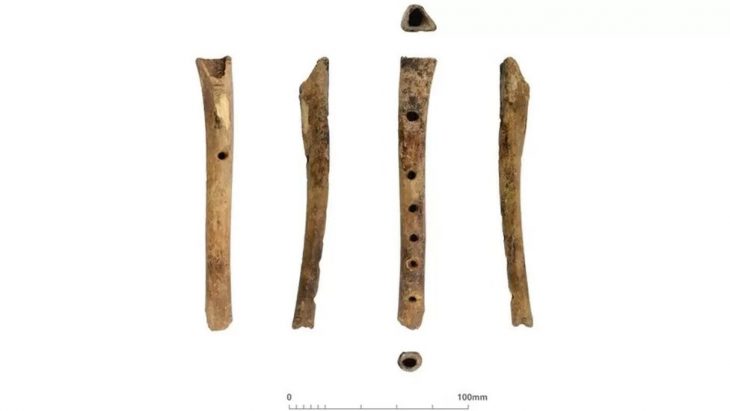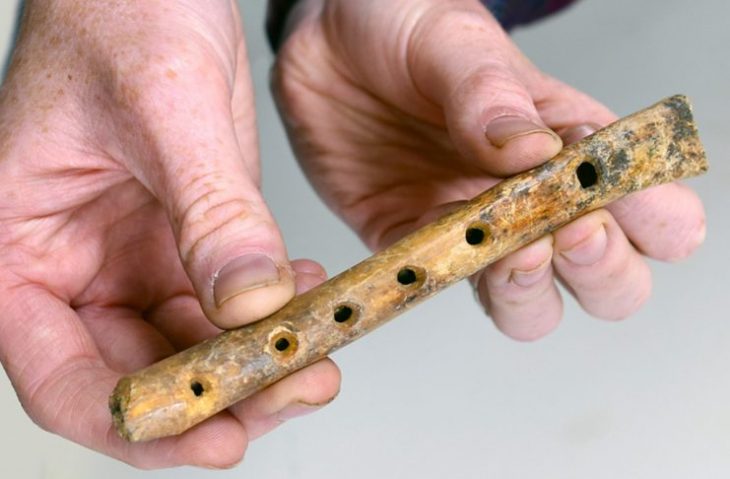Archaeologists from Cotswold Archaeology stumbled upon a rare medieval bone flute, a testament to the musicality of past residents.
The instrument, known as a fipple flute, was found within a rectangular enclosure surrounded by a ditch. Dating of pottery fragments in the layer where it resided suggests the flute originated sometime between the 12th and 15th centuries.
Crafted with expertise from the tibia (shinbone) of a sheep or goat, the flute boasts five finger holes along its top and a single thumb hole on the underside. While researchers believe it may be missing a mouthpiece, the instrument itself remains remarkably complete and in excellent condition.

This find adds to the growing collection of medieval fipple flutes across England. A similar example, accompanied by a mid-14th century coin, was unearthed at Keynsham Abbey in Somerset in 1964. Additional flutes have been discovered in locations like Winchester, Hampshire; Flaxengate, Lincoln; and Coppergate, York. Notably, a pair of reed pipes was also found in Ipswich, Suffolk.
Fipple flutes are end-blown instruments, similar in design to recorders and slide whistles. Flutes, in general, have an incredibly long history, with the oldest known example – a griffon vulture bone flute – dating back a staggering 40,000 years. The Neanderthal Flute, partially crafted from a bear bone, predates this vulture flute by a further 20,000 years.
However, the archaeological record reveals significant gaps between these prehistoric instruments and those that emerged in the early Middle Ages. Medieval fipple flutes remain exceptionally rare, with only around 120 archaeological examples, dating from the 5th to 16th centuries, having been unearthed across Britain.
The discovery of this flute in Herne Bay not only sheds light on the musical practices of the medieval period but also adds a precious piece to the puzzle of instrument evolution. Further research on this artifact is ongoing, and archaeologists hope to glean even more insights from this captivating find.
Source: Cotswold Archaeology
